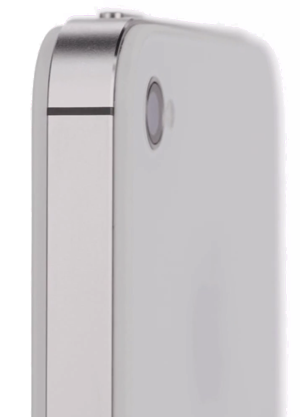The decision from Judge Andreas Voss was the first ruling on seven different patent infringement claims Samsung has made against Apple in Germany, according to Florian Mueller of FOSS Patents. Those six patents are tied up in four other lawsuits, while Apple has accused Samsung of violating six of its own patents in Germany.
Friday's ruling is particularly noteworthy because the judge chose to reject Samsung's suit, rather than issue a stay. Though Voss did not provide a reasoning for his pronouncement, if he had determined that Samsung's 3G patent was invalid, the outcome of the lawsuit would have been a stay rather than a rejection.
"There are two reasonably likely possibilities: either Apple's products weren't deemed to infringe on the patent in a technical sense or the court believes Samsung's rights are exhausted and Apple has, by extension, a technical license," Mueller wrote.
"If the reason for the rejection was technical non-infringement, Samsung's other assertions of 3G/UMTS patents in Germany could still succeed. However, if the reason was patent exhaustion, all but one of the four remaining Samsung lawsuits in Germany (one over two patents unrelated to 3G, including a smiley input patent) would likely be thrown out as well."
The ruling comes only days after Apple filed its latest suit against Samsung in Germany, a country that has been the origin of many complaints between the two companies. Apple's most recent complaint has asked the German court to ban the sale of Samsung's Galaxy S II smartphone along with nine other handsets and five tablet models.
A court in Germany previously sided with Apple and temporarily halted sales of the Samsung Galaxy Tab 10.1, but the South Korean electronics maker quickly redesigned the device to create the Galaxy Tab 10.1N. The German court found that Samsung's modifications to the redesigned tablet were enough to avoid Apple's patented designs, and the device remains available for sale.
Mueller noted that there has been a "high drop-out rate in multiple jurisdictions" for the lawsuits between Apple and Samsung. However, neither company appears to be backing down on its strategies.
"There's too much at stake, and as long as neither party has leverage, there's no pressure to settle," he offered in his analysis. "Apple and Samsung are currently the most profitable wireless device makers in the world. Neither legal fees nor the distraction that these lawsuits create pose a serious problem to their business."
The courtroom showdown began last April, when Apple filed the first lawsuit, accusing Samsung of copying the look and feel of the iPhone and iPad. Both companies are now engaged in a worldwide legal battle that has sparked lawsuits in 10 countries across four continents.
 Sam Oliver
Sam Oliver







-m.jpg)






 Charles Martin
Charles Martin
 Wesley Hilliard
Wesley Hilliard
 Stephen Silver
Stephen Silver
 William Gallagher
William Gallagher

 Marko Zivkovic
Marko Zivkovic
 Andrew Orr
Andrew Orr
 Amber Neely
Amber Neely









22 Comments
More good new. . For now at least ...
...
Friday's ruling is particularly noteworthy because the judge chose to reject Samsung's suit...
That's the right attitude, this type of lawsuits should not be allowed to court.
Seems like the German courts are getting a bit tired of these FRAND patent cases, likely not just with Samsung and Apple but all companies (we just don't hear about the others because they aren't such great hit fodder).
Seems like the cases always turn out the same. yes the patent is or should be under FRAND. yes the wording of the deal with the component maker includes licensing that covers usage by the component end user. yes asking the said hardware company to pay a license violates FRAND so its out.
Rather than waste time, the German Courts are just refusing to listen to the whole thing. While I wouldn't say that all patent cases should be treated this way I can see the logic with these FRAND cases. Especially on tech that is going out the door.
Seems like the German courts are getting a bit tired of these FRAND patent cases, likely not just with Samsung and Apple but all companies (we just don't hear about the others because they aren't such great hit fodder).
Seems like the cases always turn out the same. yes the patent is or should be under FRAND. yes the wording of the deal with the component maker includes licensing that covers usage by the component end user. yes asking the said hardware company to pay a license violates FRAND so its out.
Rather than waste time, the German Courts are just refusing to listen to the whole thing. While I wouldn't say that all patent cases should be treated this way I can see the logic with these FRAND cases. Especially on tech that is going out the door.
Apple recently lost (at least temporarily) to Motorola on FRAND patent claims.
Why didn't the German court throw out all of the three suits filed by Samesung? Obviously it's a sham and a last desperate hail mary before they go down into history like Kodak. And LOL at their pathetic attempt on smiley faces. What a pathetic company. They rob Apple blind and then claim they dropped a coin in Apple's house and they want it back. WOW.